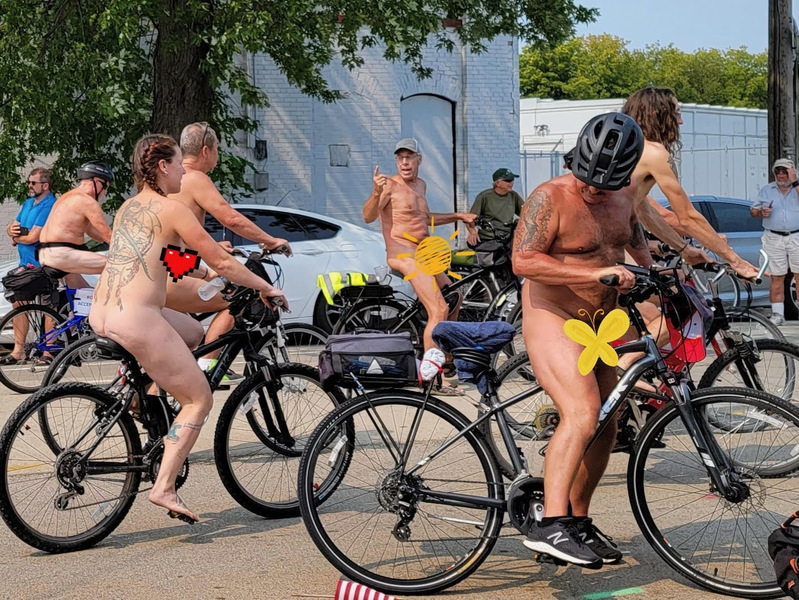Today, cyclists in Milwaukee will share a ride with the mayor in one of the highlights of the annual Bike to Work Week.
In a year, they may be sharing bikes.
The Milwaukee Business by Bike Group is leading an effort to create a bike share system in Milwaukee, tentatively designed to provide 240 bikes and 24 rental stations, and open in 2013.
The civic promotions group Spirit of Milwaukee provided $10,000 for the development work and Jack Hirt, former executive director of the Bicycle Federation of Wisconsin, has been hired to research systems and create a plan.
"If we want to be a competitive city and attract top talent for jobs, we need this," said Bruce Keyes, an attorney at Foley & Lardner and principal in Milwaukee Business by Bike. "This says we're not a city confined to the automobile; we're a city on the move."
Designed to provide short-term transportation for tourists, students and commuters, bike share systems offer bikes for rent from kiosks located across a city. Annual memberships typically include free use of a bike for 30 minutes or less. Non-members purchase use of the bikes via a daily fee. Transactions are conducted by credit card, providing more security than early variations of bike share systems.
Bike share has blossomed across the country in the past five years.
A dozen cities, including Madison, have installed Trek's B-Cycle system. Washington D.C. and Minneapolis developed their own bike share infrastructure and both Chicago and New York have hired Alta Bicycle Share to build out their massive systems over the next year.
New York City plans to provide 10,000 bikes at 600 rental stations, and last week announced a $41 million sponsorship from Citigroup that will pay for a large portion of the capital and operating costs.
In Minneapolis, the non-profit Nice Ride Minnesota built its system with federal grant dollars and a contribution from Blue Cross and Blue Shield.
Cash from similar sources will be necessary for the successful launch of bike sharing in Milwaukee.
City officials, including Mayor Tom Barrett, like the idea, but with the caveat that it doesn't take property tax dollars to build it.
Hirt estimated the initial infrastructure – bikes, rental stations, computer system, tracking and maintenance – would cost $1 million.
Dan Casanova, senior economic development specialist in the City Department of Development, said money for the capital and operating costs would be sought from a variety of sources: federal grants, tax incremental finance districts, business improvement districts and businesses.
Ideally, 20 to 25 businesses would sign on as sponsors, similar to Citigroup in New York City, and provide cash for the build out, Casanova said.
Gary Grunau, chairman of the Spirit of Milwaukee Board of Directors, makes the pitch that money for a bike share system is a good investment of Milwaukee businesses.
"It will make it better for their employees, guests and students," he said. "In today's world, providing biking opportunities for your employees, guests or students is a plus. It attracts employees in town.
"You want to be a company or an institution that's cool."
Grunau has been a leader in providing cycling amenities to workers in his Schlitz Park development, and will add a small, self-contained bike share system this summer.
DreamBikes Milwaukee, a non-profit bike shop, will provide nearly a half dozen free bikes to Schlitz Park for workers to check out for a small donation.
Bikes rented through a bike share system are geared to replace cars for short trips, less than three miles. Lunch-time trips to a shop or eatery, tourist travels from one museum to another, and students going from class to dormitory are typical uses.
"It would enhance the transportation system that's already here," Hirt said. "It gives people a choice, instead of jumping on a bus, or getting in a cab or walking. It's generally quicker than a bus or a cab for a short distance."
Bike sharing can reduce congestion, auto emissions and gas usage, and provide exercise that leads to better health.
In Milwaukee, planners are identifying the areas with heavy pedestrian traffic, high population density and visibility for the station locations.
City Hall, the University of Wisconsin – Milwaukee, Marquette University, the Milwaukee School of Engineering, the Public Market and the Third Ward Business Improvement District, Walker's Point, and the Mandel Group's North End Project have been listed in the early planning.
The next steps in the effort include finding the money to pay for it and identifying a vendor to provide the system, or creating a separate business to build it.
Memories of running cross-country for the Slinger Owls motivated Tom Held to get his body moving again when he turned 30. Almost two decades later, he's still on the move. The 49-year-old bikes, runs and skis, and covers news for similarly active people as a freelance writer and blogger.
He spent 26 years as a daily news reporter, and applies that experience to dig out stories about athletes, races, endurance sports, fitness and self-propelled transportation. His work has appeared in Silent Sports Magazine, Wisconsin Trails and Cross-Country Skier.
Held lives in the Bay View neighborhood, where he counts being Dad to twin daughters part of his daily workout.







